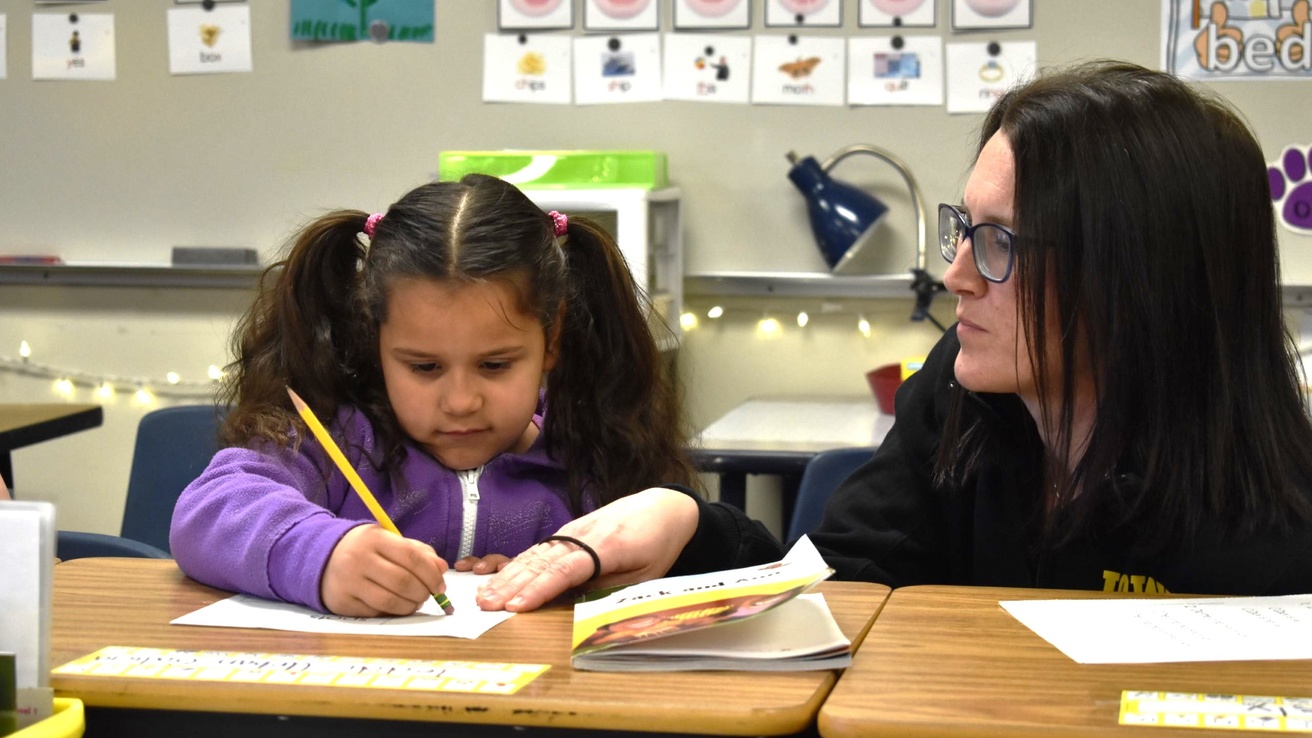
Students with dyslexia benefit when educators of all ages and subjects understand what students’ difficulties are and how to help them find reading and writing success.
Main navigation
In-service and pre-service teachers who are more informed on dyslexia will be better prepared to provide proper support, recognize the signs, and teach all students.
Teaching Students With Dyslexia
- Based on current research findings, the best approaches to improving the literacy skills of students with dyslexia involve explicit, systematic, and multisensory instruction.
- Because characteristics of dyslexia are influenced by the instructional environment, all teachers should know how to help students with dyslexia be successful in their classes. This is especially true for reading teachers, but students with dyslexia also can experience difficulties with the reading and writing requirements of other content areas.
- Given the kinds of challenges that students with dyslexia can face in acquiring literacy skills, they often require intensive interventions from teachers who have more specialized knowledge and training. Although interventionists are encouraged to do self-study and professional reading to keep current on the research-based recommendations, it usually is not sufficient to rely on self-study for initial preparation in how best to teach students with dyslexia. Those interested in becoming a dyslexia specialist can apply for the dyslexia specialist endorsement program coordinated by the Iowa Reading Research Center.
Assistive Technology
- Assistive technology includes devices, software, or equipment purposefully chosen to help children with reading disabilities complete academic and everyday tasks. Assistive technology facilitates students’ full participation in academic instruction and allows them to demonstrate their learning in equitable ways, but it does not replace the need for high-quality instruction or any supplemental intervention deemed necessary.
- Facilitating students’ use of assistive technology in the classroom can be instrumental in helping your students with dyslexia successfully learn content and demonstrate their understanding of concepts. It is important for teachers to follow the use of assistive technology as outlined in a student’s individualized education program or Individualized Education Program.
- The more you know about what is available to your students, the better positioned you will be to facilitate their assistive technology use. Start by exploring your school or district’s assistive technology options. Some schools may have an individual in charge of assistive technology, while others may rely on help from a district coordinator or regional education agency.
Recognizing Strengths
- Although it may be tempting to focus on meeting all of the needs of students with dyslexia, it is important for educators to value students’ strengths, too. Encouraging students to recognize what they are good at doing can help to grow their confidence and lead to new achievements. Please reference our eLearning Dyslexia Overview module for additional information about the common strengths of children with dyslexia.
Working With Families
- It is beneficial when families and educators develop a good relationship in order to establish the best plan for students with dyslexia. Families sometimes see students struggling in ways that are not readily apparent in school such as spending longer on homework or expressing anxiety and frustration not shown in class. In addition, families can find it challenging to reconcile all the ways in which their children excel with the extreme difficulties their children experience with literacy tasks. It is important to keep in mind that everyone’s goal is to provide what is best for the children, and working as partners is the best pathway to achieving that goal.
- Although it may not be possible to adhere to all the family’s requests, it is still important to listen intently to find feasible solutions that have the greatest likelihood of success in addressing the issues a student is experiencing. Educators who properly gather all necessary information, do not dismiss concerns of families, and who listen respectfully are better suited to gaining the support of families for any instructional recommendations for their children.
Educators can access more information and resources regarding dyslexia on the Area Education Agencies’ Iowa Dyslexia Resources Page.
Iowa Department of Education Dyslexia Guidance and Resources
On its dyslexia webpage, the Iowa Department of Education provides dyslexia guidance and resources, including:
- the Department's three priorities "in areas of policy in which it has authority to provide guidance and technical assistance."
- information on educators' roles and responsibilities when it comes to talking about dyslexia in schools
- issues surrounding dyslexia diagnoses
- required screenings
- supplemental interventions
- training for educators
- and much more